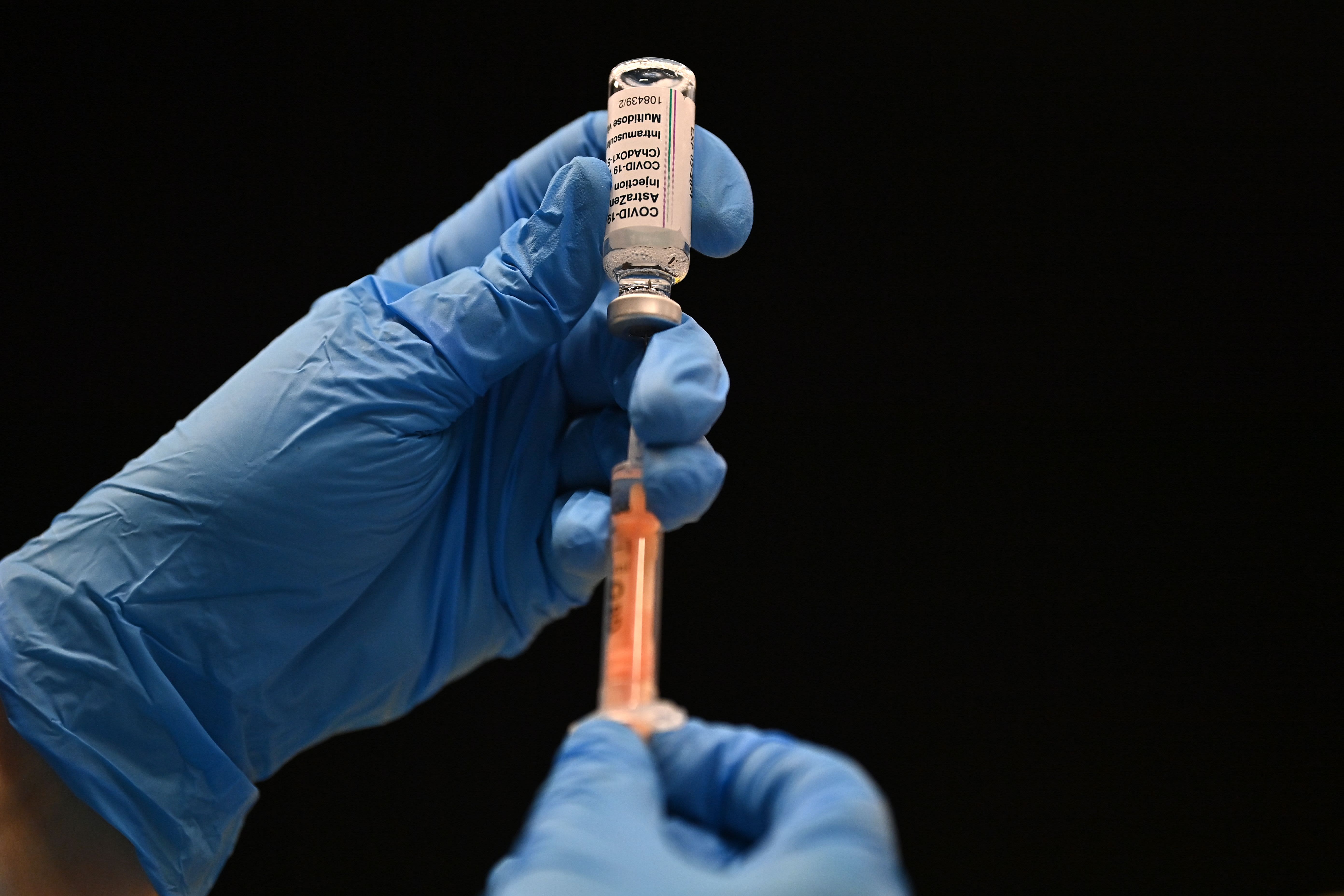EU says AstraZeneca is not doing enough to meet its vaccine deliveries target

A healthcare professional draws up a dose of the Oxford/AstraZeneca Covid-19 vaccine at the vaccination centre set up inside Brighton Centre in Brighton, southern England, on January 26, 2021.
Ben Stensall | AFP | Getty Images
LONDON — The European Union has asked AstraZeneca to do more to respect its contract with the bloc, as concerns grow that the pharmaceutical firm is set to miss delivery targets once again.
It is not the first time the EU and the drugs giant have been at odds with each other. AstraZeneca had initially offered to distribute roughly 100 million doses of its Covid-19 jab before the end of March. However, the firm had to renegotiate this amount on the back of production issues to just 40 million.
The European Commission, the institution negotiating the vaccine contracts on behalf of the 27 member states, is now concerned that even this reduced amount will not be met.
“AstraZeneca vaccines delivery: I see efforts, but not ‘best efforts.’ That’s not good enough yet for AstraZeneca to meet its Q1 obligations,” Thierry Breton, the commissioner for the internal market, said on Twitter Thursday night.
Data from the European Centre for Disease Prevention and Control shows that 11.76 million doses of the AstraZeneca vaccine have been delivered, as of Thursday.
“It’s time for AstraZeneca’s Board to exercise its fiduciary responsibility and now do what it takes to fulfil AZ’s commitments,” Breton also said.
AstraZeneca was not immediately available for comment when contacted by CNBC on Friday.
The firm’s CEO, Pascal Soriot, told European lawmakers last month that the reason behind the delays was the low yield achieved in EU plants. He also said that his company was working around the clock to increase production, and that it only had six months to prepare the jab, in comparison with other previous work where it takes years to develop a new vaccine.
EU keeping ‘a close eye’
Speaking at a press conference last month, European Commission President Ursula von der Leyen said the EU was keeping “a close eye” on the deliveries from AstraZeneca.
The supply issue has led Italy to stop a shipment of AstraZeneca vaccines that were destined for Australia last week.
European countries are able to ban Covid-19 vaccine exports when a pharmaceutical firm is not fulfilling its contract and when the vaccines are due to go to a country that’s not considered vulnerable. Low and middle-income nations, as well as neighboring countries, are exempted from these restrictions.
The realization that there could be further problems with the deliveries from AstraZeneca could lead member states to stop further shipments of this vaccine.
The vaccination rollout is fundamental for the economic recovery in the region and any new problems with jabs could derail their exit from the crisis.
European Central Bank President Christine Lagarde said Thursday that “the ongoing vaccination campaigns, together with the gradual relaxation of containment measures — barring any further adverse developments related to the pandemic — underpin the expectation of a firm rebound in economic activity in the course of 2021.”
The EU’s inoculation program has faced several criticisms so far. Some countries have complained that regulators are too slow to approve the jabs in comparison with other parts of the world; there have been production and supply issues; and red tape at the national level has also hindered the process.
The EU has committed to vaccinate 70% of the adult population before the end of the summer.
Earlier this week, the commission agreed with Pfizer and BioNTech to receive 4 million extra doses of their vaccine in the next two weeks.
On Thursday, the bloc also approved its fourth Covid-19 vaccine with the Johnson & Johnson candidate.




